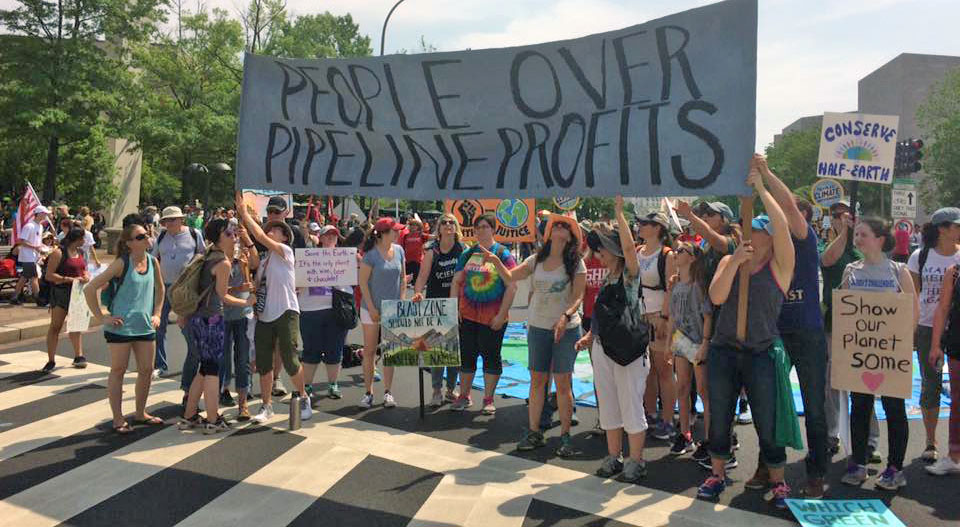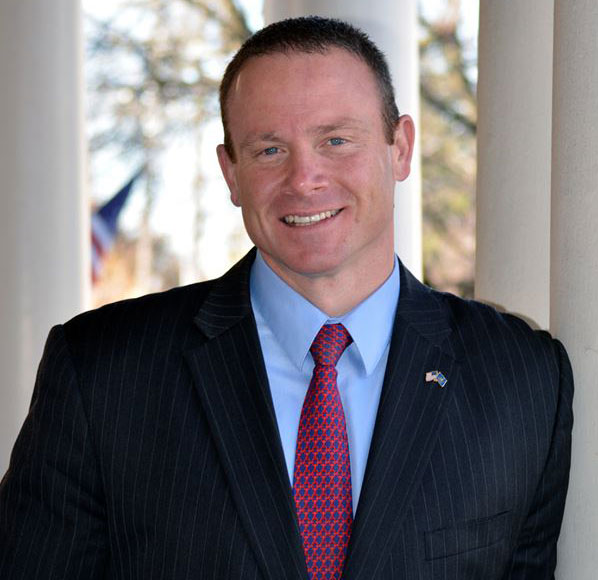By: Daniel McElroy
A new bill introduced last week in the Pennsylvania state legislature would require some protesters arrested during demonstrations to pay “public safety response” costs including police overtime, medical and emergency response, and other public services related to protesting. Backed by seven Senate Republicans, the bill was drafted and proposed by State Senator Scott Martin, who has close ties to pipeline lobbyists.
If passed, the legislation would have a major chilling effect on all kinds of protest in the state—its vague wording could allow it to be selectively applied even when protesters’ actions have no relation to the costs they would be required to cover.
The text of the bill, SB 754, states that “a person is responsible for public safety response costs incurred by a State agency or political subdivision as a result of the State agency’s or political subdivision’s response to a demonstration if, in connection with the demonstration, the person is convicted of a felony or misdemeanor offense.”
Writers of the proposed legislation have made clear its connection to anti-pipeline protests around the country. The legislation begins with a lengthy and detailed description of the implications of last year’s Standing Rock demonstrations in North Dakota against the Dakota Access Pipeline, including specific figures: $38.2 million paid by state and local taxpayers, 48 million pounds of trash removed, 35,412 hours logged by North Dakota National Guard. The bill also argues that it is “improper for Commonwealth taxpayers to bear the financial burden for response costs related to unlawful gatherings and illegal activities.”
Senator Martin is from Lancaster County, which has seen its own share of protests against the Atlantic Sunrise natural gas pipeline. He first expressed interest in drafting anti-protest legislation last May, after holding a conference call between his county’s officials and their counterparts in North Dakota, saying that he hoped to deter future pipeline protests in Pennsylvania.
Elizabeth Randol, legislative director of the Pennsylvania ACLU, has raised two major concerns in opposition to Martin’s proposed bill. First, she makes clear that even though people convicted of crimes can and should be held accountable for costs associated with their particular actions, this bill could single out very few protesters, making them financially responsible for the actions of large groups and leaving it up to the state, National Guard, or a local police department “as to whether or not they want to attempt to recover additional costs that are associated with the protest but that are not necessarily related to the specific crime that the individual was convicted of.”
Furthermore, and perhaps most importantly, she believes the bill could be used to single out protesters and to intimidate them from exercising their constitutionally guaranteed rights of free speech and assembly. “We’re all sensitive to costs and to what that does to a tax bill or the kind of stress and strain it puts on our first responders,” Randol stated. “But you can’t have those costs be borne on the back of people who are protesting and engaging in their First Amendment protected rights to speech and assembly.”
It should also be noted that Senator Martin’s connections to the oil companies behind Pennsylvania’s proposed pipelines are quite close; before entering the state legislature he was employed with Community Networking Strategies, a subsidiary of a larger lobbying group that works for Sunoco Logistics, the company responsible for the Mariner East 2 pipeline which would also run through Pennsylvania.
The Voice Project stands against the current wave of anti-protest legislation aimed at chilling free speech that is currently making its way through state legislatures across the country, but SB 754 is especially egregious because it directly targets individuals. Singling out protesters to cover costs potentially unrelated to their own actions is a form of intimidation that impinges upon First Amendment rights and must not be tolerated. Join us, raise your voice against the proposed bill.


